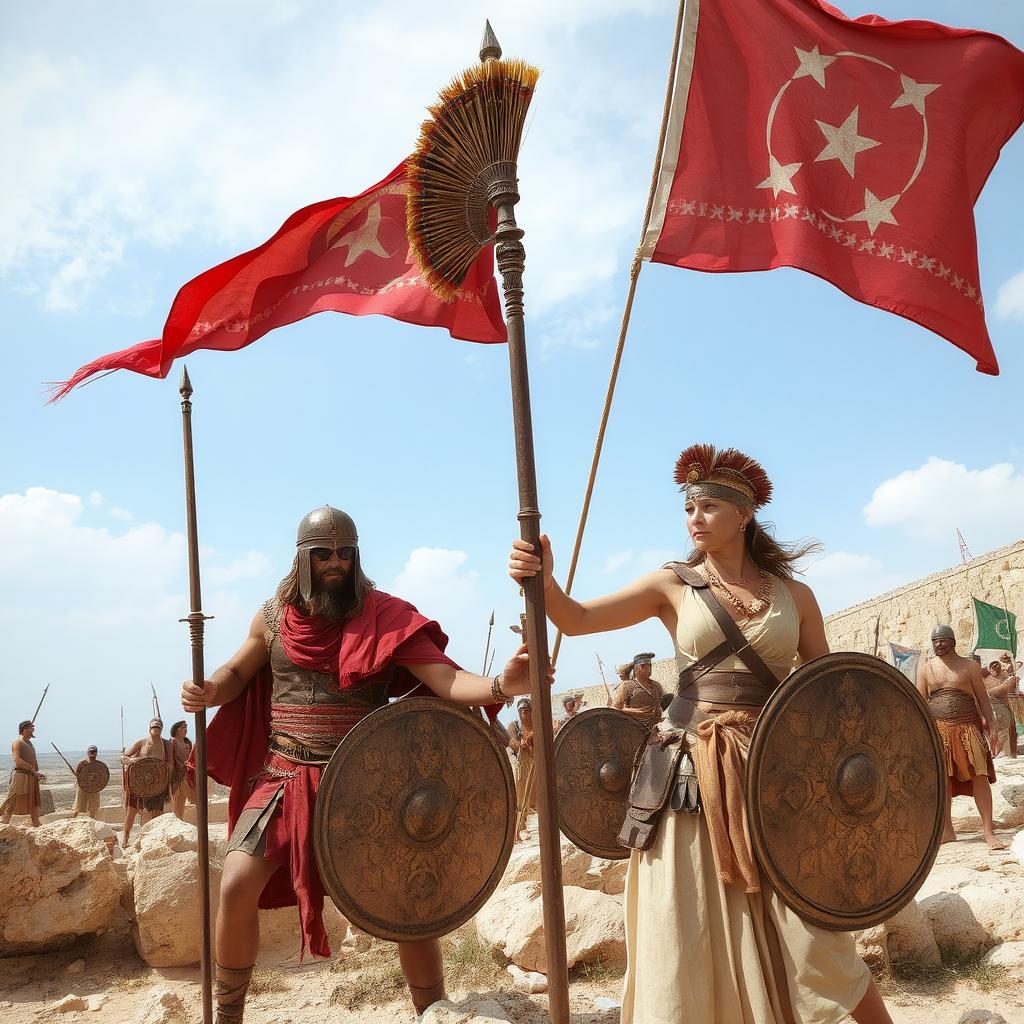Kleos, an ancient warrior code for today’s life

In the ancient world, heroes sought something beyond mere survival—they aimed for kleos. This concept, rooted in ancient Greek culture, represents the pursuit of glory, honor, and lasting renown. In a society where oral tradition preserved history, kleos was the ultimate reward for warriors, guaranteeing that their names and deeds would be remembered long after their deaths. Today, this idea might seem distant, yet the essence of kleos holds lessons for modern life, encouraging us to strive for a meaningful legacy.
Understanding Kleos: Glory Beyond Life
In its simplest form, kleos means “glory” or “renown.” But it’s much deeper than that. The term originates from the Greek verb kleein, meaning “to hear.” Therefore, kleos is not just personal fame; it’s the reputation heard and recited by others, often passed down through stories, poems, and songs. Heroes in Greek mythology, like Achilles and Odysseus, embodied the pursuit of kleos. Achilles, for example, faced a choice between a short, glorious life or a long, unremarkable one. He chose the former, ensuring his deeds would be immortalized in epic tales.
For these heroes, achieving kleos required courage, honor, and exceptional deeds, especially in battle. A warrior who gained kleos became more than just a soldier—he became a symbol, a source of inspiration for others. This concept was deeply tied to the Greek idea of arete (excellence) and the quest for a life that had significance beyond its physical limits.
Kleos Beyond Greece: Warrior Codes in Other Civilizations
While kleos is specific to ancient Greece, other ancient civilizations had their own versions of warrior codes emphasizing honor, courage, and the pursuit of glory:
-Ancient Rome: The Romans valued virtus, which included courage, duty, and honor. A soldier’s virtus was tied to his reputation and legacy. Like Greek warriors, Roman soldiers sought glory on the battlefield, believing their deeds would be remembered by their community and future generations. The Roman practice of building monuments and writing historical accounts was a way to secure and celebrate virtus.
-The Samurai of Japan: The Bushido code, which means “the way of the warrior,” is perhaps the most famous example of a warrior ethos. Emphasizing loyalty, honor, and courage, the samurai lived by these principles, seeking to maintain their integrity even in the face of death. Similar to kleos, Bushido was not only about personal glory but also about earning a lasting reputation and fulfilling one’s duty to society.
-Vikings and Norse Culture: In Norse mythology, warriors sought fame and an honorable death in battle. The concept of Valhalla, a hall where fallen warriors would feast and prepare for Ragnarok, was tied to the idea of gaining everlasting glory. For the Norse, dying bravely meant being remembered forever, much like the Greek pursuit of kleos.
Kleos in Modern Life: Leaving a Legacy
While we no longer live in a world where warriors fight for survival or glory on the battlefield, the principles behind kleos remain relevant. Today, the pursuit of kleos can be seen as striving for a meaningful and impactful life, one that leaves a positive mark on others and contributes to society. Here are a few ways to apply this ancient concept:
Excellence in One’s Craft: Kleos teaches the value of arete, or striving for excellence. Whether you’re an artist, entrepreneur, athlete, or teacher, aiming to do your best work ensures that you leave a mark. It’s about committing fully to what you do and making a difference, even in small ways.
Courage in Facing Challenges: Like Achilles or Odysseus, facing challenges with courage is a way to earn modern-day kleos. Whether it’s overcoming personal adversity, taking bold steps in your career, or standing up for your values, demonstrating courage builds a legacy that others will remember.
Building a Positive Impact: In the ancient world, heroes gained kleos through acts that benefited their community. Today, this can translate into making a positive impact on the people around you—mentoring others, supporting causes you believe in, or contributing to your community’s well-being. These actions help build a legacy that, like kleos, echoes beyond your own life.
Storytelling and Memory: In Greek culture, kleos was passed down through epic poetry. Today, it’s about how people remember you and what stories they tell about your life. Cultivating meaningful relationships, acting with integrity, and inspiring others ensures that your story continues to be told, even after you’re gone.
Embracing the Spirit of Kleos
Kleos reminds us that life is not just about the present moment but also about the legacy we leave behind. It’s about pursuing excellence, acting with courage, and making choices that positively impact others. While we may not fight on ancient battlefields, we can still seek a form of glory that resonates in today’s world—by striving for personal excellence, contributing to society, and building a lasting, meaningful legacy.


